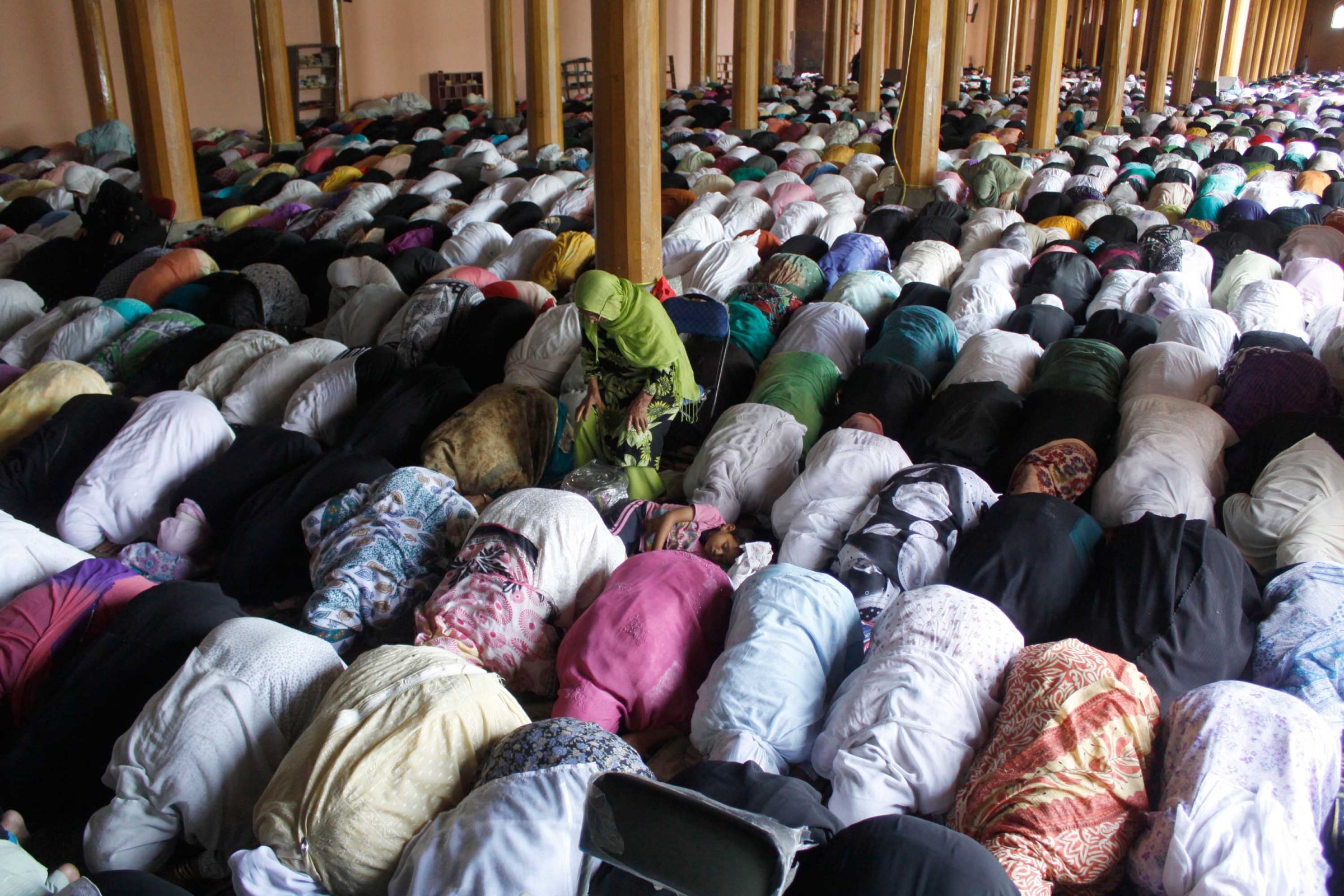
The holy month of Ramadan is a time of deep reflection for Muslims worldwide. Over the 30 days of Ramadan, Imam Sohaib Sultan of Princeton University will offer contemplative pieces on contemporary issues drawing from the wisdoms of the Qur’an – the sacred scripture that Muslims revere as the words of God and God’s final revelation to humanity. The Qur’an is at the heart of Muslim faith, ethics, and civilization. These short pieces are meant to inspire thought and conversation.
Some years ago when I was going through a difficult time connecting with God and doubting if I was really fit to be a chaplain, I had an experience that reawakened the spiritual senses within me. I was asked to visit an old Muslim woman in the hospital who was recovering from a stroke. I sat near the woman’s bedside offering prayers for the sick and comforting words. I looked into her big gray eyes – eyes that I knew had seen too much misery and suffering in the world having come to the United States as a refugee from Bosnia. She listened carefully and graciously to my words – words I had grown accustomed to repeating when I would visit the sick.
Then, suddenly, in the midst of ramblings, the old woman interrupted with a simple confession: “I was really, really sad.” I gathered myself and slowly asked, “Was it the thought of dying?” She shook her head indicating that wasn’t it. “Were you afraid of leaving your family?” I asked seeing the loving family gathered around her. That wasn’t it either. Taking her hand as tears began to flow from her blessed eyes, she said gasping between words: “I was sad that I would never again be able to prostrate before Allah.” By the time she struggled to let those words out, there wasn’t a dry eye left in the room. And I felt in that moment that something had changed within me.
Prostration (sujud in Arabic) is a special moment within the Muslim ritual prayer that involves every major limb of the body partaking in an act of worship. Sujud is placing one’s palms and knees, nose and forehead on the ground while repeating words of divine glorification. Sujud is a symbolic act of surrendering one’s ego completely to God. The Qur’an tells believers to prostrate themselves before God, just as every living creature in the heavens and on Earth prostrate themselves before their creator (22:18). And the Prophet Muhammad taught his followers that God is closest to the servants when they are in the position of sujud. When physical prostration is not possible, then symbolic prostration with gestures or even with one’s eyelids or less suffices. So, this old woman that I went to counsel instead counseled me, renewed my faith and told me – without ever knowing it – just exactly what I needed to do to reconnect with God: lovingly and adoringly fall into sujud not just in ritual prayer, but as a metaphor for the way to live life itself.
Time and again, I have found that people who have experienced the most painful tragedies in life have some very special wisdom and connection with God to offer. The question of theodicy is asked and debated so often by my students who are trying to grapple with suffering in the world or students immersed in philosophy. But rarely have I been asked this question among the poor and suffering. There’s often a certainty of and trust in God that I have found in these people – a certainty and trust that I have longed for myself.
The Prophet tells us that when we’re brought before God in the coming life, God will complain to us, “O son or daughter of Adam, I was hungry and you did not give me anything to eat. I was thirsty and you did not give me anything to drink. I was sick and you did not visit me.” The human being will reply, “You’re the Lord of the worlds, how can we give you to eat or drink or visit you?” And God will reply, “So-and-so was hungry, had you fed him you would have surely found Me with him. So-and-so was thirsty, had you given him to drink you would have surely found Me with him. So-and-so was sick, had you visited him you would have surely found Me with him.”
The Qur’an describes the righteous as such: “they give food to the poor, the orphan, and the captive, though they love it themselves, saying, ‘We feed you for the sake of God alone, we expect neither reward nor thanks from you” (76:9).
Indeed, in serving, it is we who stand so much more to gain than to offer. Serving people, especially those who are most in need and vulnerable, is not only a responsibility and a noble deed – it is a way of finding and being with God.
More Must-Reads from TIME
- Cybersecurity Experts Are Sounding the Alarm on DOGE
- Meet the 2025 Women of the Year
- The Harsh Truth About Disability Inclusion
- Why Do More Young Adults Have Cancer?
- Colman Domingo Leads With Radical Love
- How to Get Better at Doing Things Alone
- Michelle Zauner Stares Down the Darkness
Write to Sohaib N. Sultan at ssultan@princeton.edu